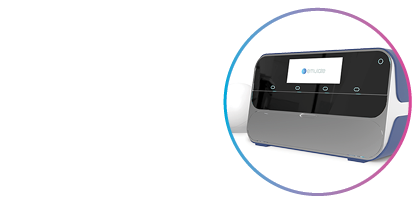Webinar Abstract
Oncology drug candidates are currently the least likely type of therapeutic to succeed in clinical trials, with only 5.1% of Phase I candidates going on to receive FDA approval1. Understanding a tumor’s microenvironment is key to regulating cancer progression and developing more effective therapies—and Chip-A1 will give researchers this capability.
In this August 15, 2023 webinar, Luke Dimasi, Senior Director of Product Management at Emulate, provided an overview of the Chip-A1 Accessible Chip, a new Organ-Chip consumable that expands the applications of Organ-on-a-Chip technology by allowing users to create thicker, multilayered tissues within the epithelial culture chamber and directly treat the tissue with topical or aerosolized drugs. Following this introduction, Elee Shimshoni, PhD, postdoctoral researcher at MIT, discussed how she and her former team from the Wyss Institute at Harvard used a prototype of Chip-A1 and found that it offered a new approach for studying epithelial-stromal interactions in Barrett’s Esophagus as well as the broader underlying mechanisms associated with esophageal cancer progression.
During this webinar, the speakers discussed:
- New capabilities of Chip-A1 that expand the applications of Organ-on-a-Chip technology
- Why Chip-A1 improves in vitro modeling of epithelial-stromal interactions and tumor microenvironments
- A case study of using Chip-A1 to model Barrett’s Esophagus
- How a Barrett’s Esophagus Chip-A1 model could potentially serve as a tool for personalized drug-response assessments between different patients or genetic subpopulations
About Organ-on-a-Chip Technology
Organ-on-a-Chip technology is poised to deliver a paradigm shift in drug discovery. By emulating human physiology, Organ-Chips have the potential to increase the predictive power of preclinical modeling and advance more drugs to the clinic. Learn more about Organ-on-a-Chip technology by downloading our free eBook.

